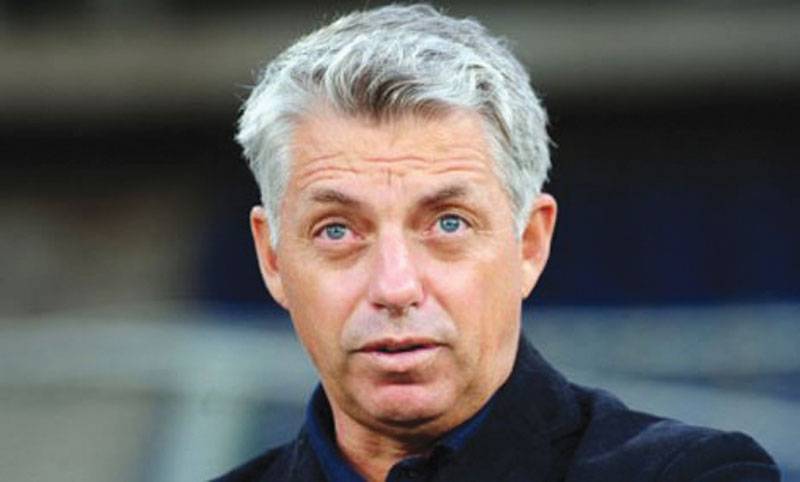SYDNEY - The number of teams taking part in the 2019 World Cup hasn't been finalised, the International Cricket Council told AFP on Friday as it responded to growing criticism that its proposed cut risked damaging the sport's development. Cricket chiefs have come under fire for their plan to reduce the number of teams involved in England in four years' time to 10 from the 14 taking part in the ongoing tournament in Australia and New Zealand.
But ICC chief executive David Richardson, in a telephone interview with AFP, said Friday: "I've learnt never to say never to anything. I'm sure the format of the next World Cup will be debated after this one has finished."
Ireland beat one of the elite Test match nations for the third successive World Cup when they defeated the West Indies by four wickets in their 2015 opener, while Thursday saw tournament debutants Afghanistan's astonishingly rapid progress continue when they defeated Scotland by just one wicket to record their first World Cup win. "I'm pleased with the performances of the qualifiers so far, but the bigger tests are still to come," said Richardson. "The question is what do you want the World Cup to be? Do you want it to be a jamboree of world cricket or the pinnacle of the one-day game?"
"Heading into this tournament there was criticism that the format (where 14 teams are split into two groups of seven, with the top four in each pool qualifying for the quarter-finals) would leave us with a long group stage, at the end of which the eight teams everyone thought would get through had made it into the quarter-finals."
Asked what his feelings were following the initially improved showing by the four Associate sides -- Afghanistan, Ireland, Scotland and the UAE -- at the World Cup, Richardson said: "There's a sense of relief. Our biggest concern before the tournament was that these teams would be uncompetitive."
An online petition calling for the ICC to abandon its plan to reduce the number of teams in 2019 has already gathered more than 13,000 signatures. But Richardson said the thinking in reducing the number of teams had been motivated by trying to get as near to the "best format" 1992 World Cup The nine sides taking part in Australia and New Zealand 23 years ago all played each other, with the top four going straight into the semi-finals.
"The best format was 1992," said Richardson, South Africa's wicketkeeper at that World Cup. "You had nine teams, then the semi-finals. There was something up for grabs in every match." But Richardson denied the 2019 World Cup would be a 'closed shop' of the elite Test-playing nations. As things stand, the eight top-ranked one-day sides as of September 30, 2017, will qualify automatically with the final two spots to be decided by a qualifying tournament in Bangladesh in 2018.
Although they are both members of the 10-strong Test 'elite', Zimbabwe and Bangladesh have generally been ninth and tenth in the rankings and could well find themselves involved in a qualifying event featuring the likes of Ireland and Afghanistan. "We didn't want to go to 10 nations without providing a pathway where you could have the leading associates and the lower-ranked Test nations scrapping it out," said Richardson. "All will have an opportunity to qualify."
The best way to improve a ranking is to beat higher-ranked teams, yet the Test nations are not obliged to play Associate or junior teams such as Ireland, who beat the West Indies in their World Cup opener, outside of major tournaments. "It's a good point about the rankings. We are working with the full (Test) members to make sure they play as much as possible against the Associates," Richardson said.
"We are looking at upwards of six ODIs each year for the Associates, although some of these may be against each other. But the fixture schedule is congested." Steve Waugh, Australia's former World Cup-winning captain, is among those who believe the emerging nations deserve their place. "It is definitely important to have the minnow countries to grow the game in different markets," Waugh told Friday's Sydney Morning Herald: "The World Cup of soccer has 32 countries. Cricket needs more than eight teams playing."
Tuesday, April 16, 2024
Size of 2019 World Cup still to be decided: ICC

IHC dismisses Bushra Bibi's plea seeking her shifting to Adiala Jail from Bani Gala
4:25 PM | April 16, 2024
Punjab CM visits Tehsil Headquarter Hospital Murree
3:25 PM | April 16, 2024
High-level Saudi delegation in Islamabad to hold meetings with Pakistani leadership
2:07 PM | April 16, 2024
Saudi foreign minister meets PM Shehbaz Sharif
1:17 PM | April 16, 2024
Decision to retaliate against Iran attacks rests with Israel, says Pentagon
1:05 PM | April 16, 2024
Political Reconciliation
April 16, 2024
Pricing Pressures
April 16, 2024
Western Hypocrisy
April 16, 2024
Policing Reforms
April 15, 2024
Storm Safety
April 15, 2024
Democratic harmony
April 16, 2024
Digital dilemma
April 16, 2024
Classroom crisis
April 16, 2024
Bridging gaps
April 16, 2024
Suicide awareness
April 15, 2024
ePaper - Nawaiwaqt
Advertisement
Nawaiwaqt Group | Copyright © 2024





